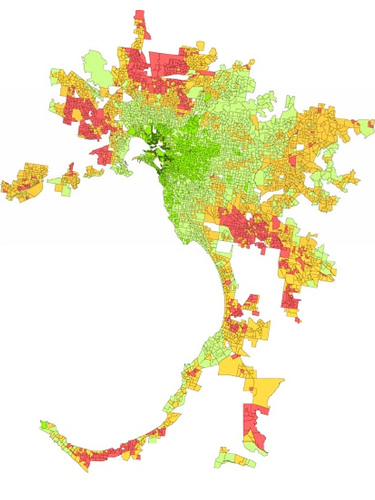On the 24th of March I attended the Ringwood Precinct Open House, which provided an opportunity for residents living within the Ringwood Central Activities District and namely the residential area to the west of Ringwood to actively engage council and discuss any concerns they may have.
It was great to see a strong interest from the community and discussion with council around areas such as Eastland, Ringwood Station, open space and traffic. I would like to thank the many staff across all areas of council who engaged the community and took the time to hear and provide feedback.
There were three annual general meetings that I attended over the past month, including the North Ringwood Community House on the 24th of March. North Ringwood Community House is the only community house in Maroondah which is a registered training organisation and as a result they provide TAFE accredited Certificate III and IV training courses, in areas such as Aged Care, Palliative Care and Disability Services.
As I’ve reported previously, the priority for the house is to find a new location which will improve its accessibility and provide additional rooms to cater for increasing enrolments. The house recently submitted its grant application for feasibility study funding through the Department of Planning and Community Development.
The following day on the 25th of March I attended the annual general meeting for Central Ringwood Community House based in Bedford Park in Ringwood. Central Ringwood Community House provides an emphasis on computer training courses, as well as educational services to migrant communities and many other areas of interest for our community. The house is continuing to experience ongoing growth and has plans to improve accessibility and provide additional classroom facilities.
The Maroondah Citizens Advice Bureau AGM was held on the 1st of April and provided an opportunity for its membership to meet their new office manager and report on the ongoing growth in their emergency food relief. The guest speaker for the meeting was from the Primary Care Partnerships who spoke about food security and the difficulties some households are experiencing in purchasing fresh and nutritious food.
On the 4th of April I attended the launch of the Ringwood Bowls Club Water Reclamation Facility. The project provides three water tanks and a water retention system collecting water from the roof, adjacent roadways, the car park and their greens resulting in a capacity of 280,000 litres. It is estimated that the facility will conserve 1.5 million litres providing significant water savings. This project was the culmination of cooperation between all levels of government, Federal, State and Local, which included a grant from Council’s Water Sustainability Fund.
Lastly, Eastern Volunteers have organised a conference for the 13th and 14th of May exploring volunteer, social inclusion and community wellbeing. For details, including registration and the conference program, please visit their website at www.easternvolunteers.org.au.
